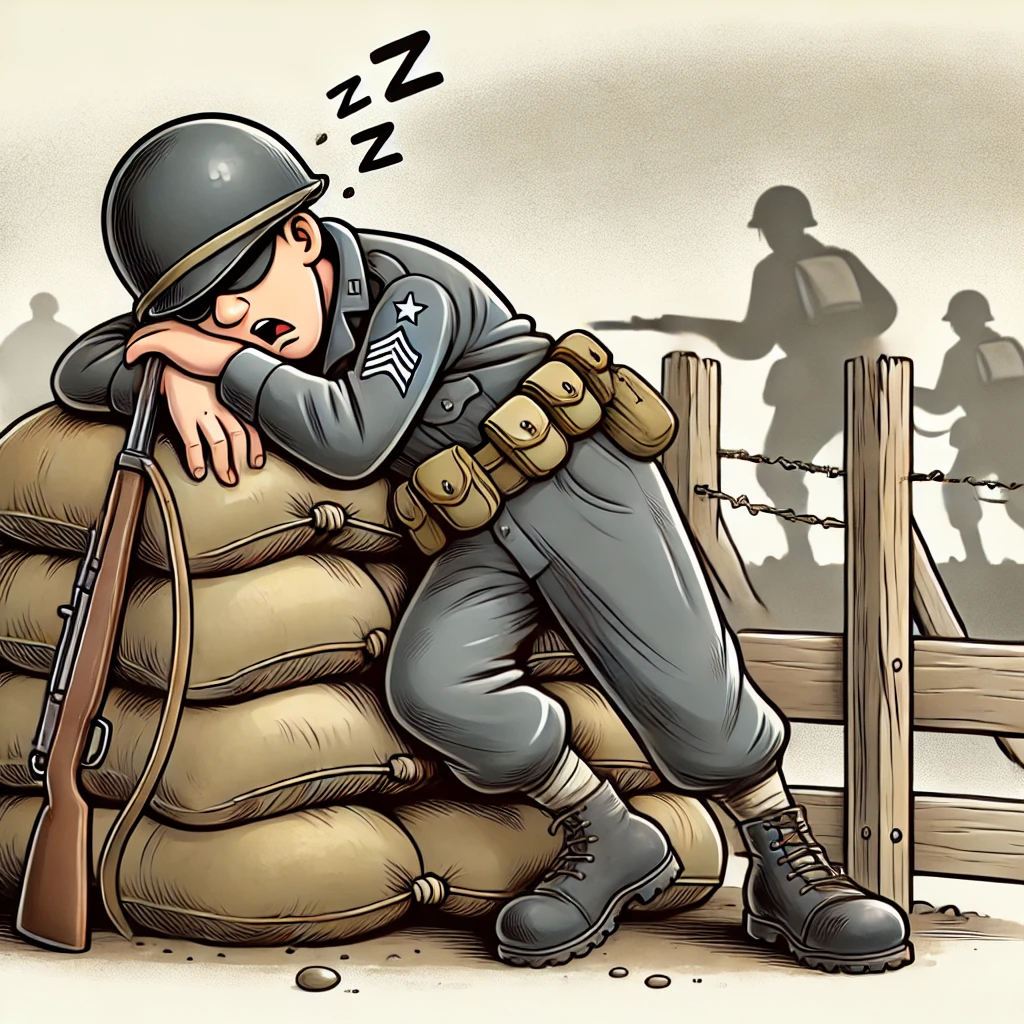The Lone German Sentry Asleep at Normandy: A Mistake That Changed D-Day
June 6, 1944, is one of the most pivotal days in military history—D-Day, the Allied invasion of Normandy. But what if a single moment of negligence helped shape its success? Legend has it that a lone German sentry, stationed near a critical gun battery, fell asleep on duty, a mistake that allowed Allied forces to land with less resistance than expected.
The Setting: The Night Before the Invasion
The German defenses along the Normandy coast were formidable. With machine-gun nests, artillery, and bunkers spread across the beaches, the Atlantic Wall was meant to repel any Allied invasion. German high command believed the Allies would strike at Pas de Calais, and poor weather conditions reinforced their confidence that an attack was not imminent.
As night fell on June 5, many German soldiers stood watch, but some—perhaps exhausted or lulled into complacency by the false sense of security—let their guard down. One such sentry, stationed near a key artillery position, is rumored to have fallen asleep, unaware that history was unfolding around him.
The Moment That Changed Everything
As the first wave of Allied paratroopers and commandos began their advance inland, silence was their greatest weapon. Their goal was to neutralize key German defenses before the beach landings began. In one sector, they approached a heavily fortified gun battery that had the potential to wreak havoc on the incoming landing craft.
To their astonishment, they encountered no immediate resistance. The lone sentry on duty was asleep. This lapse allowed the Allied troops to silently neutralize the position without firing a shot, ensuring that the heavy guns never fired on the landing forces. Had the sentry been awake, he could have raised the alarm, giving German forces precious time to prepare and counterattack.


The Impact of a Simple Mistake
While a single German soldier’s mistake did not single-handedly win the battle for the Allies, it highlights how small moments can have massive consequences in war. The absence of early warning delayed German reinforcements and left key defensive positions exposed. By the time German commanders realized the scale of the invasion, it was too late to repel the overwhelming force that had already established a beachhead.
This incident is a stark reminder that in warfare, every soldier’s vigilance matters, and the smallest miscalculation can alter history. Whether myth or truth, the story of the lone German sentry asleep at his post remains a fascinating “what-if” moment in the larger story of D-Day. sentence builds on the last to maintain a cohesive flow. You can include data, anecdotes, or expert opinions to reinforce your claims. Keep your language concise but descriptive enough to keep readers engaged. This is where the substance of your article begins to take shape.

Leave a Reply